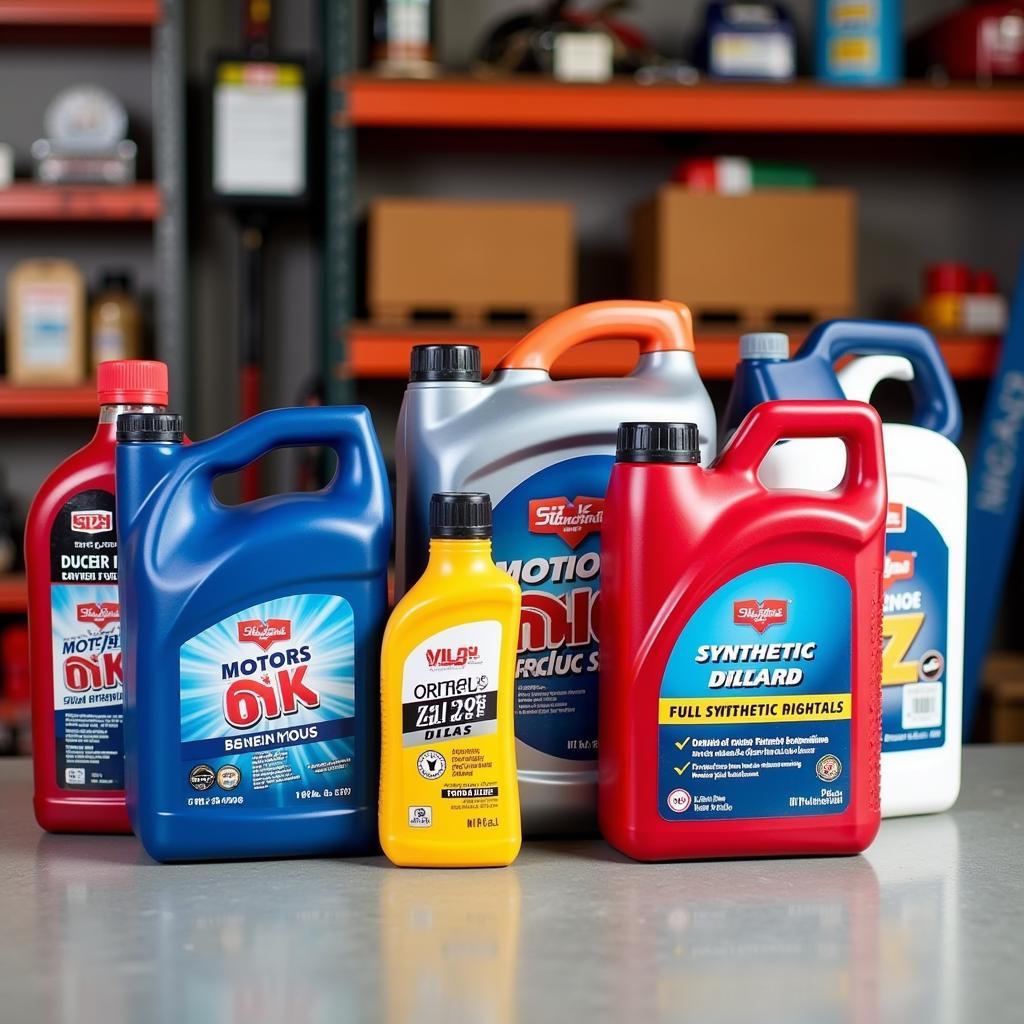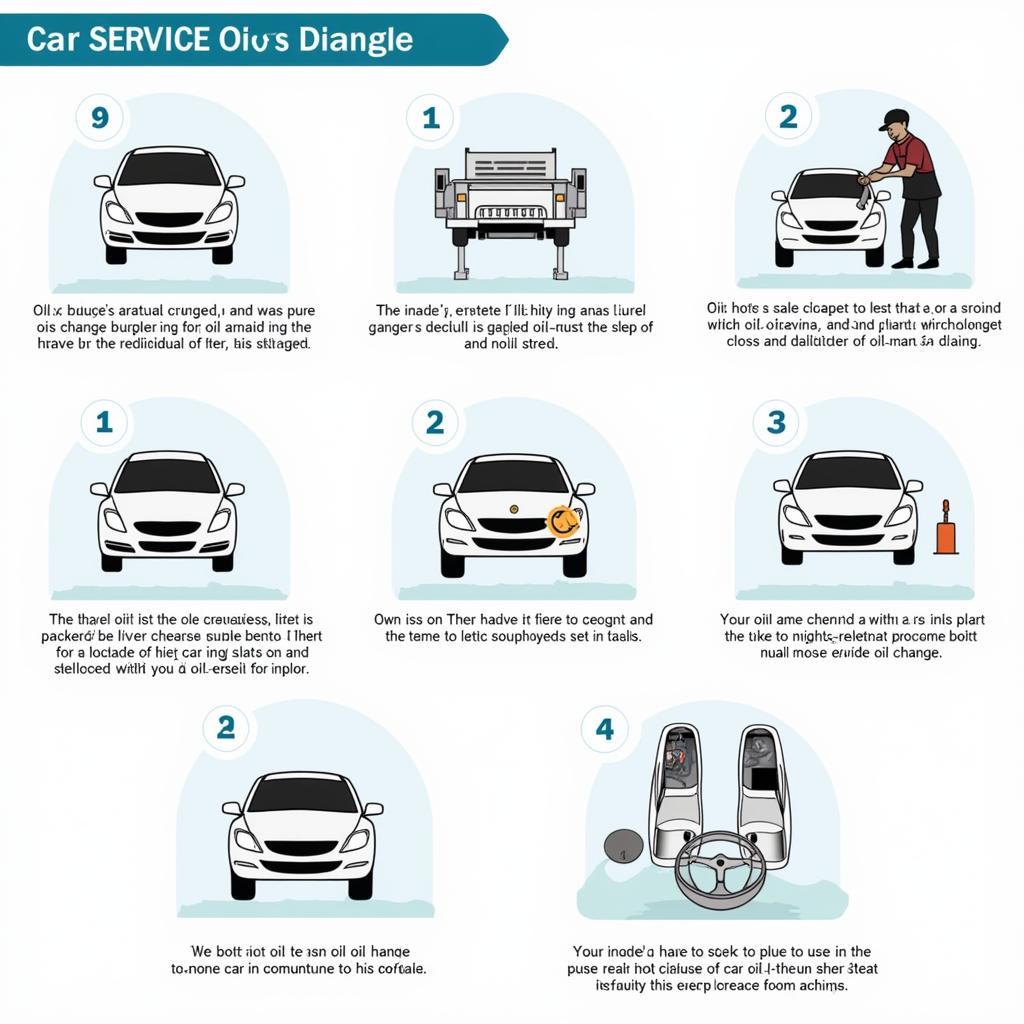Car Service Change Oil: What You Need to Know
Car Service Change Oil is one of the most essential maintenance tasks you can do for your vehicle. Regular oil changes keep your engine running smoothly and can extend its lifespan. But with so many different types of oil, filters, and service options available, it can be difficult to know where to start. This comprehensive guide will cover everything you need to know about car service change oil, from understanding why it’s so important to choosing the right oil for your car.
Why is Car Service Change Oil Important?
Your car’s engine is made up of many moving parts, and these parts create friction when they rub together. Motor oil acts as a lubricant, reducing this friction and preventing wear and tear. Over time, however, the oil breaks down and becomes less effective, losing its ability to lubricate and cool the engine components.
Here are some key benefits of regular car service oil changes:
- Reduced Engine Wear: Clean oil prevents metal-on-metal contact, reducing wear and tear on engine components.
- Improved Fuel Efficiency: When your engine runs smoothly, it requires less fuel to operate.
- Lower Emissions: Clean oil helps your engine burn fuel more efficiently, reducing harmful emissions.
- Extended Engine Lifespan: Regular maintenance, including oil changes, can significantly extend the life of your engine.
- Prevents Costly Repairs: Addressing minor issues like dirty oil can prevent major engine problems down the line.
 Car Engine Oil Change
Car Engine Oil Change
How Often Should You Get a Car Service Change Oil?
The frequency of oil changes depends on several factors, including:
- Vehicle Age: Older cars may require more frequent oil changes.
- Driving Conditions: Stop-and-go city driving, towing, and extreme temperatures can put more strain on your engine, requiring more frequent oil changes.
- Oil Type: Synthetic oils typically last longer than conventional oils.
- Manufacturer Recommendations: Always refer to your vehicle’s owner’s manual for specific oil change intervals.
As a general rule of thumb, it’s a good idea to get your oil changed every 3,000 miles or every 3 months, whichever comes first. However, newer vehicles with synthetic oil can often go 7,500 miles or even 10,000 miles between oil changes.
Choosing the Right Oil for Your Car
Selecting the correct motor oil is crucial for the health of your engine. Use the following guidelines:
- Viscosity: Viscosity refers to the oil’s resistance to flow. It’s denoted by a numerical code (e.g., 5W-30). The owner’s manual will specify the recommended viscosity for your vehicle.
- Type: There are three main types of motor oil:
- Conventional Oil: This is the most common and affordable type of oil.
- Synthetic Blend Oil: A blend of conventional and synthetic oils, offering better performance than conventional oil at a slightly higher price.
- Full Synthetic Oil: Engineered for superior performance, providing better protection, longer life, and improved fuel economy.
- Industry Standards: Look for oils that meet or exceed industry standards like API (American Petroleum Institute) and ILSAC (International Lubricants Standardization and Approval Committee).
 Different Types of Motor Oil
Different Types of Motor Oil
What Happens During a Car Service Change Oil?
A typical car service change oil appointment includes the following steps:
- Vehicle Inspection: A technician will visually inspect your car for any leaks or potential issues.
- Oil Draining: The old oil will be drained from the engine oil pan.
- Oil Filter Replacement: The old oil filter will be removed and replaced with a new one.
- New Oil Addition: The technician will add the correct type and amount of new oil to your engine.
- Fluid Check: Other essential fluids, such as coolant, brake fluid, and power steering fluid, may be checked and topped off as needed.
- Tire Pressure Check: Your tire pressure will be checked and adjusted as needed.
 Car Service Oil Change Process
Car Service Oil Change Process
Tips for Saving Money on Car Service Change Oil
- Look for Deals: Many auto shops offer coupons or discounts on oil changes.
- Consider Oil Change Packages: Some shops offer packages that bundle oil changes with other routine maintenance services.
- Learn to DIY: If you’re mechanically inclined, you can save money by changing your own oil.
Car Service Change Oil Near Me
Finding a reliable and trustworthy car service center for your oil change is essential.
- Car change oil service near me: Discover reputable service centers in your vicinity specializing in car oil changes.
- Car service and oil change near me: Locate nearby service providers offering comprehensive car maintenance, including oil change services.
Conclusion
Car service change oil is a fundamental aspect of vehicle maintenance, ensuring optimal engine performance, longevity, and fuel efficiency. By understanding the importance of regular oil changes, choosing the right oil type, and finding a reliable service provider, you can keep your car running smoothly for years to come. Remember to consult your owner’s manual for specific recommendations and don’t hesitate to ask a qualified mechanic if you have any questions.

